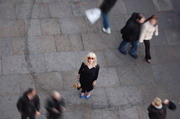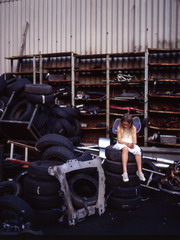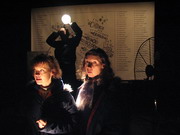Best of Edinburgh Festival Fringe 2010A Celebration of UK performance in China9 Theatre, Beijing |
Founded in 1947, the Edinburgh International Festival grew out of the rubble of the Second World War with the aim of providing 'a platform for the flowering of the human spirit'. Now every August, the Festival presents three exhilarating weeks of the finest creators and performers from the worlds of the arts while Edinburgh's theatres, concert halls, and smaller venues come alive with the best theatre, classical music, opera, dance and visual art from around the globe. Since 2008, Milky Way Arts & Communications Co., Ltd began to present the Edinburgh Festival highlight so as to bring UK's finest new theatre productions to Chinese audiences. Vibrantly staged, emotionally engaging, experimental yet universally entertaining and accessible ¨C these dramas explore the multi-dimensions of modern society and human sentiment. |
|
If That¡¯s All There Isby Inspector Sands
|
|
Home of the Wrigglerby Stan¡¯s CafeHome of the Wriggler was provoked by the passion unleashed in Birmingham when BMW announced it was looking to dispose of MG Rover. It was to have been a documentary about a working factory but events caught up with us; Longbridge closed within a month of our first research visit. It would have been easy to make this show nostalgic or a requiem for the plant, but it’s not our history to be that intimate with, so we have tried to steer clear of sepia images. |
     |
ONE SMALL STEPby Oxford PlayhouseA note from the Writer, David Hastings: Why are there so many artistic portrayals of the Space Race? Because people are interested! People recognise it as the greatest scientific achievement in human history. But, perhaps, also, because subconsciously people also realise that the long-term survival of our species is dependent on us leaving Earth. The stubborn rufusal of the human race to curtail its breeding (in this writer’s lifetime alone we have doubled in number from 3 billion to 6 billion) and, as a result, climate change and the eventual exaustion of the Earth’s resources, have alerted us to the fact that to avoid self-destruction we will – albeit, centuries from now – inevitably leave our plant. And where do we go? There’s nowhere else except…out there… |






